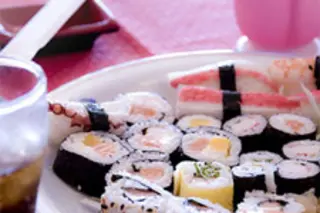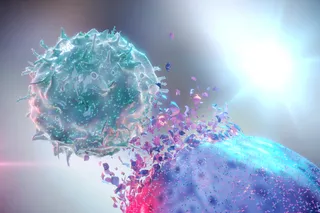Here's a new way to prove the maxim that we are what we eat: Take a peek into the teeming universe of bacteria that thrive in a Japanese person's gut. Trillions of microbes in the gut help digest the foods we eat, and researchers have found that the "gut microbiomes" of Japanese people have adapted over the centuries to help digest seaweed--an integral part of sushi. Remarkably, they adapted by taking in genetic material found in that very sushi. The new study, published in Nature, reveals that these gut bacteria engaged in a gene swap, grabbing algae-digesting genes from marine bacteria that live on red algae like nori, the seaweed used to wrap sushi. The marine bacteria traveled on the seaweed into human digestive systems, where the crucial genes were transferred to bacteria in the gut. Scientists stumbled on this swap when they identified a new group of enzymes from ...
Special Seaweed-Chomping Bacteria Found in the Guts of Japanese Diners
Discover how the gut microbiomes of Japanese people have evolved to digest sushi, acquiring genes from marine bacteria.
More on Discover
Stay Curious
SubscribeTo The Magazine
Save up to 40% off the cover price when you subscribe to Discover magazine.
Subscribe













